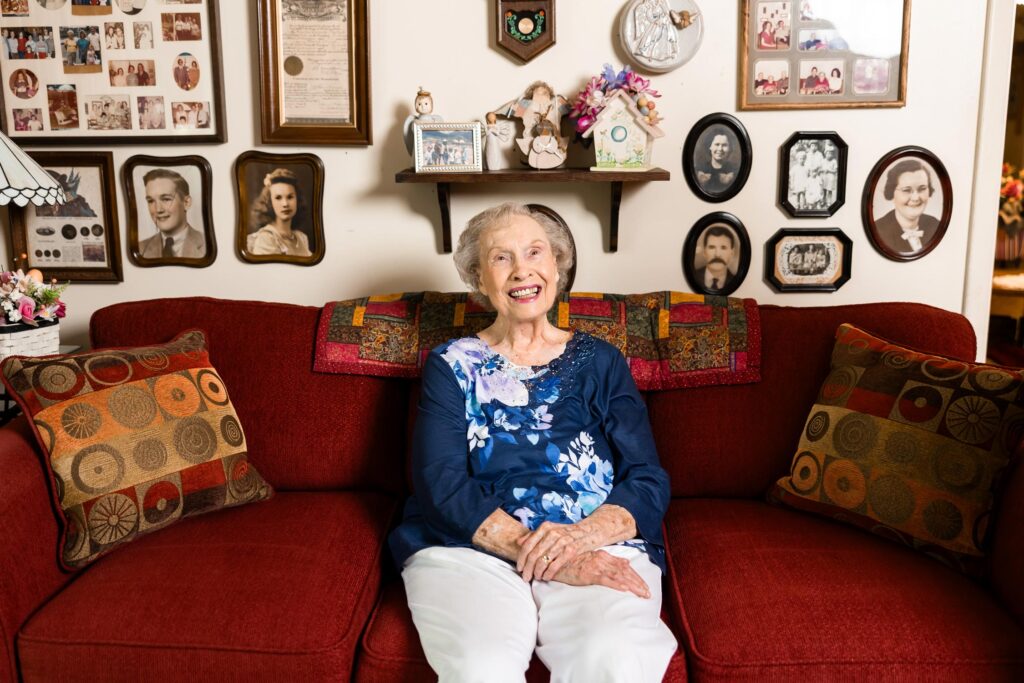Living with your elderly parents or moving them into your home is a significant decision. It can strengthen family connections, reduce expenses, and provide better care. However, it may also bring stress, limit privacy, and lead to conflicts. Before deciding, it’s important to consider both benefits and challenges. Is this the right move for your family?
Key Takeaways:
- Pros of Living with Elderly Parents: Living with elderly parents can strengthen relationships, offer emotional support, lower financial costs, and improve safety and health monitoring.
- Cons of Multigenerational Living: On the other hand, multigenerational living may lead to reduced privacy, caregiver stress, and potential disagreements over household routines.
- Home Adjustments for Comfort & Safety: To enhance comfort and safety at home, consider installing grab bars, ramps, non-slip flooring, and motion-sensor lights to improve ease of movement.
- Alternative Living Options: If living together isn't feasible or preferred, alternative options include independent living communities, assisted care facilities, in-home caregiving services, or an accessory dwelling unit (ADU).
- Managing Caregiving Finances: When managing caregiving finances, it is crucial to budget appropriately. Additionally, explore tax benefits, apply for financial aid programs if eligible, set up joint accounts or power of attorney arrangements, and always guard against scams.
- Preventing Caregiver Burnout: To prevent caregiver burnout, it is important to seek family or professional support. Prioritize self-care, and consider respite assistance when needed.
- Setting Boundaries for Peaceful Co-Living: For peaceful co-living, it’s essential to communicate expectations clearly, balance independence with support, and handle controlling behavior from elderly parents with patience.
- Considering Professional Care: Finally, if daily tasks become overwhelming due to memory problems, mobility issues, or isolation concerns, it might be time to look into additional professional help.

The Pros and Cons of Living with Elderly Parents
Living with elderly parents can strengthen family bonds. Daily interactions create lasting memories between generations. Grandparents and grandchildren develop deeper relationships, and being together provides emotional support during difficult times.
Another benefit is financial relief. Assisted living facilities can be expensive, but shared housing lowers costs for rent, utilities, and groceries. Some elderly parents contribute financially, easing the burden on their children.
Safety also improves when elderly parents live with family. Health concerns, such as falls or medication management, can be monitored more easily. If a parent has cognitive impairments, having close supervision can provide peace of mind.
The Challenges of Multigenerational Living
A primary concern is the loss of privacy. Sharing a home requires adjusting to different habits and routines. Limited space can create tension, making it essential to set boundaries early.
Caregiving stress can be overwhelming. Managing appointments, administering medications, and assisting with daily tasks can also take an emotional and physical toll. Many family caregivers struggle with burnout. Learning to cope with caregiving stress can help, and outside support may be necessary when the burden becomes too much.
Disagreements over house rules are common. Elderly parents may have different expectations regarding discipline, meals, or schedules, leading to friction. Open communication and compromises help maintain a peaceful household.
While living with elderly parents has its rewards, it’s important to acknowledge the challenges. If caregiving becomes unmanageable, professional support or alternative housing options may be needed.
Living Comfortably With Elderly Parents
Modifying Your Home
Creating a safe and comfortable home for elderly parents starts with essential modifications. Firstly, install grab bars in bathrooms and near stairs for added stability. Additionally, if they struggle with mobility, ramps can make doorways more accessible.
Moreover, a senior-friendly layout is important. Ideally, set up their bedroom on the first floor to avoid stairs. Furthermore, wider hallways and rearranged furniture improve movement for walkers and wheelchairs. Lastly, reducing clutter minimizes fall risks.
Good lighting is crucial. Older adults need brighter spaces, especially at night. Motion-sensor lights in hallways and bathrooms improve visibility. Replace slippery flooring with non-slip options for added protection.
If daily tasks become difficult, in-home personal care services provide assistance with bathing, dressing, and mobility. Simple modifications create a safer and more comfortable environment.
When Living With Elderly Parents Isn’t An Option
Living together doesn’t work for every family, and that’s okay. Several options offer independence while maintaining support.
One choice is independent living communities, where seniors live in private apartments with access to amenities such as meals, housekeeping, and activities. If more assistance is needed, assisted living facilities provide help with medical needs and daily care.
For families who prefer home-based care, in-home caregiving services offer professional assistance with personal care, allowing seniors to remain in familiar surroundings.
Another option is an accessory dwelling unit (ADU), often called a granny flat. These are small, separate homes on family property that allow elderly parents to maintain independence while staying close.
If you need guidance on home modifications or caregiving options, CareLink provides helpful resources. Choosing the right setup is based on health needs, financial considerations, and personal circumstances.
Managing the Financial Aspects of Caregiving
Caregiving comes with financial responsibilities, including medical bills, home modifications, and daily expenses. Proper planning can help minimize financial strain.
Financial Planning for Living With Elderly Parents
- Budgeting for Extra Household Costs
Estimate the additional expenses for groceries, utilities, medical supplies, and transportation. Track spending to identify where to adjust and consider setting up a separate caregiving fund. - Exploring Tax Benefits and Deductions
You may qualify for tax breaks when supporting an aging parent. If your parent qualifies as a dependent, you could claim exemptions or deductions for medical expenses. A tax professional can provide guidance. - Understanding Government Assistance Programs
Programs such as Medicaid and Supplemental Security Income (SSI) offer financial relief for eligible seniors. The Benefits.gov website provides information on available assistance. Some states offer caregiver compensation programs to support family members providing care.
Handling Your Parents' Finances Responsibly
- Setting Up Joint Accounts or Power of Attorney
Managing a parent’s financial matters can be easier with joint bank accounts or a power of attorney (POA) for financial decisions. Choose someone trustworthy to oversee expenses. - Preventing Financial Scams
Seniors are often targeted by fraudsters through fake charities, IRS scams, and aggressive sales tactics. Educate your parent about scams, monitor their accounts, and consider security measures such as fraud alerts. Suspicious activity should also be reported to the National Elder Fraud Hotline. - Discussing Financial Contributions Openly
Conversations about money can be uncomfortable, but they help establish expectations. Clarify whether your parent will contribute financially, and if siblings are involved, determine a fair cost-sharing arrangement. Family caregiver support services can provide additional resources.
Maintaining Emotional Well-Being While Living With Elderly Parents
The Emotional Challenges of Caregiving
Caring for an aging parent can be emotionally draining. Many caregivers experience guilt, stress, or sadness as they adjust to changing family dynamics. Making difficult decisions while balancing other responsibilities adds to the pressure.
Strategies to Help Prevent Burnout
Having a support system is important. Talk with family or join local caregiver support groups to share experiences. Taking time for personal interests also helps maintain balance.
Respite care provides temporary breaks, reducing stress. Professional caregiving services or adult daycare programs offer relief when needed. The CDC provides mental health resources for caregivers seeking support.
Establishing Boundaries and Maintaining Family Harmony
Common Sources of Conflict
- Resistance to Household Changes – Parents may be hesitant to accept safety modifications like grab bars or ramps. A conversation about their benefits can help ease concerns.
- Sibling Disagreements – Unequal caregiving responsibilities may create tension. Open discussions help ensure fairness.
- Parenting Differences – Generational gaps in discipline, screen time, or diets can cause disagreements. Setting clear household expectations prevents misunderstandings.
Setting Healthy Boundaries
- Communicate Expectations Clearly – Establish routines early to prevent conflicts.
- Balance Support and Independence – Give parents choices to help them feel independent.
- Address Controlling Behavior Kindly – Additionally, if a parent dominates household decisions, reminding them of shared expectations fosters respect.
Considering Professional Caregiving or Assisted Living
If safety becomes a concern, professional help may also be necessary. Signs include difficulty with hygiene, forgetfulness, or frequent falls. Professional caregivers also provide medical and daily assistance, reducing stress for family members and improving social engagement for seniors.
Caring for elderly parents is both rewarding and challenging. With careful planning, open discussions, and support, families can create a fulfilling and manageable caregiving experience.
Living with Elderly Parents: Is It Right for You?
Thinking about moving an elderly parent into your home? It’s a big decision with many factors to consider. CareLink offers resources like respite care, in-home assistance, and family caregiver support to help you make an informed choice. Contact us today for expert advice.





